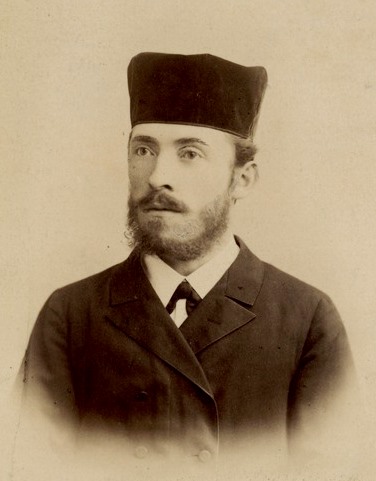Polish cantor and composer. Abraham Ber Birnbaum was born to a Hassidic family in Pultusk, Poland. He was exposed to music as a young child while accompanying his father on trips to the courts of the Rabbis of Kutsk and Ger, where Abraham would hear Hassidic music. Although he was considered an Illui in Talmud, Abraham turned to a music career at a young age; he began by singing in the synagogue choir of the local cantor Leizerke, as well as by studying violin with a local Klezmer and playing at Hassidic gatherings. His father did not approve of his path as a musician, but eventually allowed it on the condition that he keep up his religious studies.
When the family moved to Lodz, Birnbaum became acquainted with Haim Haikel Janowsky, who would become a central figure in his musical development. Under Janowsky’s influence, he learned general music theory, but continued to sing in a Jewish choir. In Lodz, Birnbaum studied to become a shohet (slaughterer), a profession which was customarily paired with the cantorate, and received a job as cantor-slaughterer (hazzan-shohet) in a village in Hungary. During his tenure in Hungary, Birnbaum studied music, composed his first piece (Al Neharot Bavel), and began publishing articles in “Hazfira” magazine.
In 1891, Birnbaum returned to Poland and officiated as cantor in Przasnysz and established a choir. During this time, he continued his job as shohet, a responsibility which he tried to rid himself of. He continued composing and wrote a few of his famous pieces. His search for a “cantor-only” office found success in 1893 when Birnbaum received the job of chief-cantor in Czestochowa, where he would stay for the next twenty years.
In 1913, Birnbaum left Czestochowa and returned to Lodz. In Lodz, he opened a retail business for pianos and for other instruments, and continued teaching and composing. He composed mainly musical settings of poems (including Japanese poems). In the last years of his life, Birnbaum tried to establish another newspaper, but the turbulence of WWI prevented its success.
Abraham Ber Birnbaum died in 1922 during a visit to Czestochowa.




